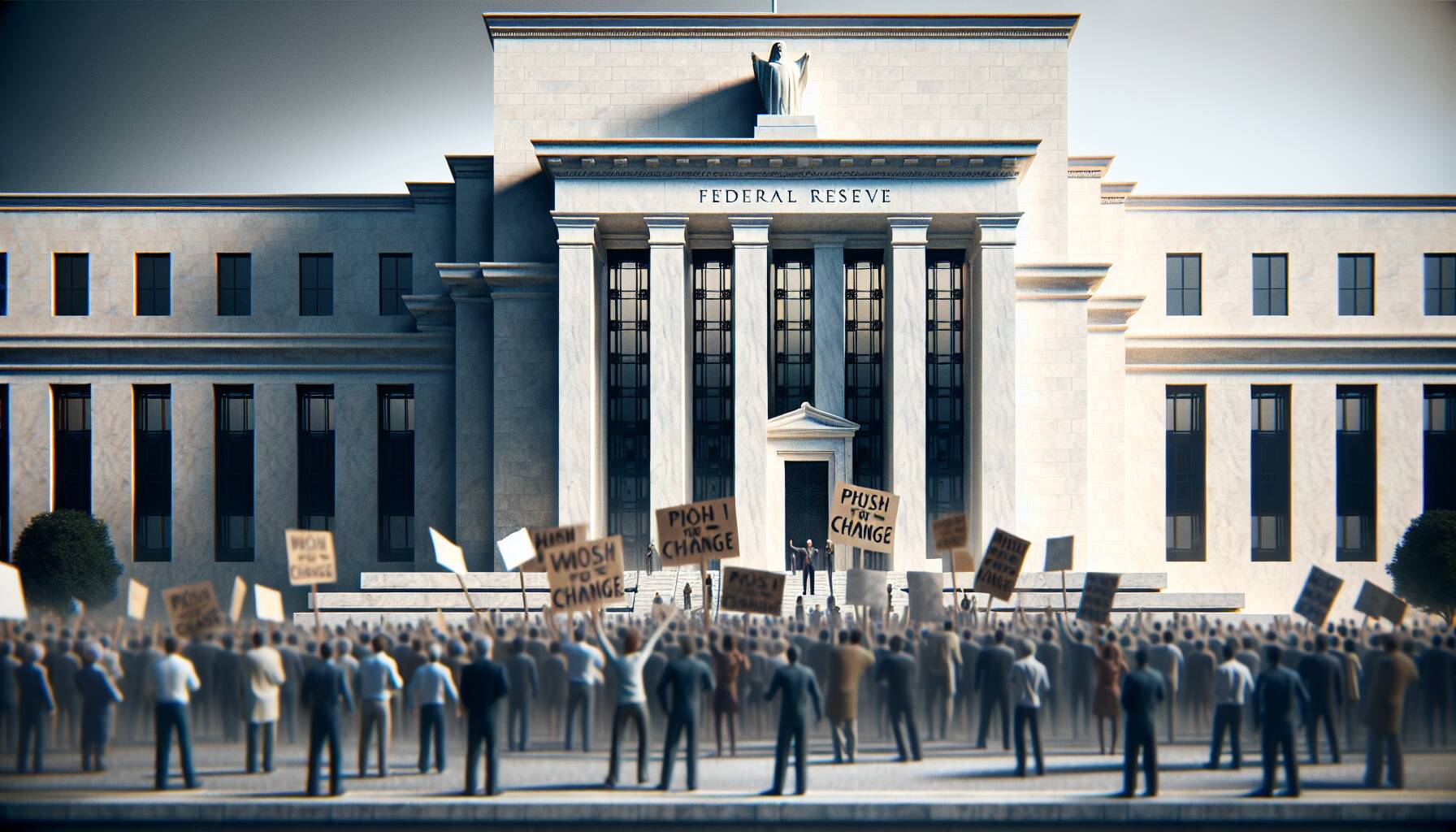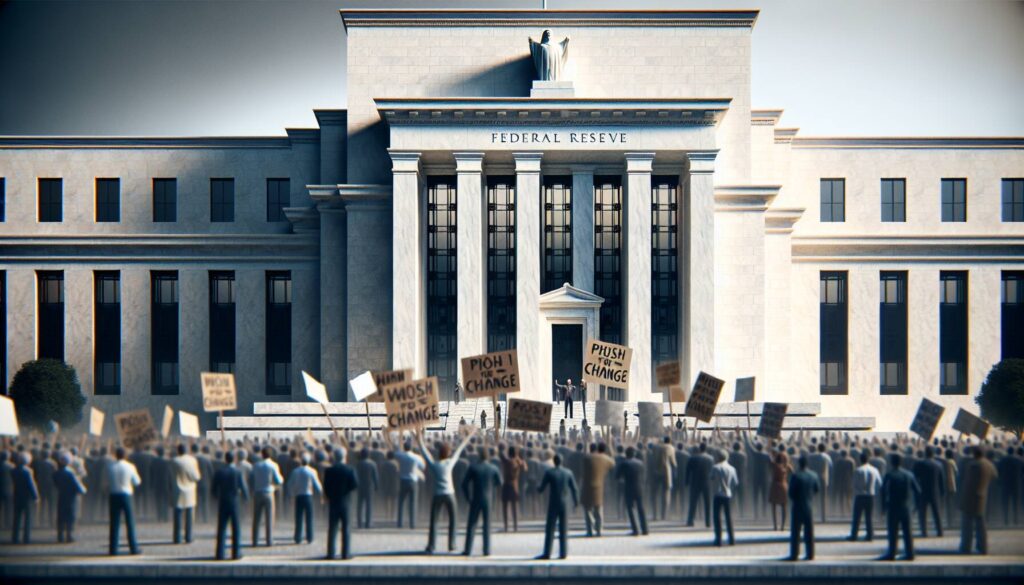Turmoil is brewing around the leadership of the U.S. central bank, with former President Donald Trump publicly expressing his dissatisfaction with Federal Reserve Chairman Jerome Powell. Trump has long criticized Powell’s reluctance to lower interest rates, especially in light of the upcoming 2024 election, suggesting that the current rates are not aligned with what he believes should be the lowest in the world.
The conflict escalates as key political figures, including members of Congress, join the chorus of discontent towards Powell’s tenure. Bill Pulte, the head of the Federal Housing Finance Agency, has leveled accusations of political bias against Powell, alluding to deeper issues that may warrant a congressional investigation.
“Jerome Powell has been very bad for our country,” Trump stated over the weekend, emphasizing his belief that lower interest rates are crucial for economic prosperity.
Critics are increasingly questioning Powell’s effectiveness, especially regarding his handling of the Federal Reserve’s substantial $2.5 billion headquarters renovation—a move framed by some as possible misconduct. Despite the independence of the Federal Reserve, the political pressure is mounting, leading to speculation about the chairman’s future in his role.
Recent developments have intensified rumors of Powell’s potential dismissal, with Treasury Secretary Scott Bessent announcing that a formal process is underway. Congressional voices have echoed calls for change, suggesting a shift may be imminent.
As tensions rise, the markets are bracing for potential shifts in interest rate policies, with predictions remaining uncertain. Current estimates point to a slim chance of rate cuts at the upcoming Federal Open Market Committee meeting, with future dates promising more volatility in the ongoing saga of the Fed’s leadership.

Donald Trump’s Discontent with Jerome Powell
Key points regarding Trump’s stance on the Federal Reserve Chairman and its implications:
- Trump’s Criticism of Powell: Trump has openly criticized Jerome Powell, stating, “Jerome Powell has been very bad for our country,” arguing for lower interest rates.
- Pressure for Change: Calls for Powell’s dismissal are growing, with some Republicans and former officials suggesting a “regime change” at the Federal Reserve.
- Independence of the Fed: The Federal Reserve operates independently, making it challenging to remove Powell without a legally justified reason.
- Renovation Controversy: Powell faces scrutiny over a $2.5 billion headquarters renovation, with accusations of misconduct emerging.
- Rumors of Firing: There are increasing rumors about Trump potentially firing Powell soon, despite Trump’s own statements downplaying these claims.
- Interest Rates Outlook: Current forecasts indicate a low likelihood of interest rate cuts in the near future, with speculation increasing for potential changes in September.
These developments may affect economic stability and personal finance decisions based on shifts in Federal interest rates.
Political Turmoil and Economic Implications: The Fed Chair Controversy
The current dynamics surrounding Jerome Powell’s leadership at the Federal Reserve are igniting fierce debates across political and financial landscapes. With Trump vocally dissatisfied with Powell’s reluctance to further cut interest rates, the tension between economic policy and political maneuvering has never been more pronounced. Many political figures echo Trump’s sentiments, creating a substantial coalition questioning Powell’s effectiveness, primarily based on his recent decisions and perceived biases.
Competitive Advantages: On one hand, Trump’s continuous critique taps into a broader sentiment among businesses and investors yearning for lower interest rates to spur economic growth. This narrative resonates particularly well with small business owners and pro-growth advocates who believe that easier credit could revitalize the economy ahead of the 2024 elections. Moreover, the potential for a shift in leadership at the Fed could open the door for more market-friendly policies conducive to business growth.
Competitive Disadvantages: Conversely, Powell’s insistence on maintaining a cautious approach underscores the Fed’s commitment to combatting inflation, which poses risks if mishandled. Critics argue that a hasty replacement could destabilize the financial environment further, leading to uncertainty in the markets. The calls for Congressional investigations into Powell’s actions could potentially undermine the Fed’s independence, a principle that investors usually favor for maintaining market stability.
Stakeholders Affected: The high-stakes nature of this political showdown benefits speculators and traders who thrive in volatile environments, but it creates anxiety for long-term investors who prefer stability. Homebuyers, particularly those in the housing market, may also find themselves caught in the crossfire as changing rates could affect mortgage costs. Any disruption caused by a leadership change could further jeopardize affordable housing initiatives, complicating matters for everyday Americans seeking homeownership.

















